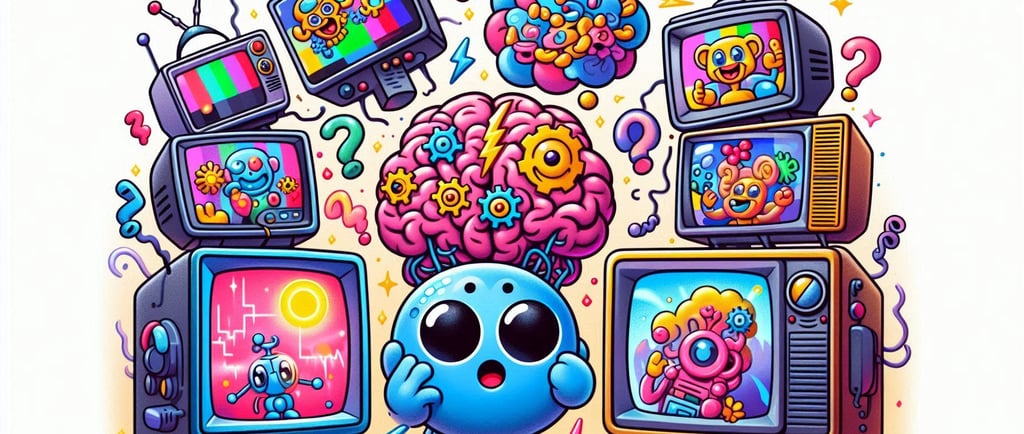AI Upscaling Classic Sitcoms: A Nostalgia Miss or Technological Leap?
AI upscaling used on classic sitcoms like Roseanne and A Different World has sparked backlash from fans over distorted visuals and lost nostalgic charm. Viewers report garbled faces and nonsensical text, criticizing the technology’s limitations in faithfully preserving original content. While streaming platforms aim to meet modern standards, many argue AI isn’t ready to handle the delicate task of remastering beloved TV classics.
TOOLSHALLUCINATIONS
The AI Maker
6/23/20252 min read


The age of streaming has brought with it the joy of rewatching beloved classics—but not without controversy. Recently, fans of iconic sitcoms like Roseanne and A Different World have expressed outrage after noticing bizarre visual distortions in newly released versions of the shows on Peacock and Netflix. The culprit? Many believe it's AI upscaling—a generative tool being used to remaster old footage for modern displays.
While remastering content to meet modern resolution standards isn’t new, the growing reliance on artificial intelligence to automate that process is raising eyebrows—and not always for the right reasons. AI upscaling attempts to "enhance" low-resolution footage by filling in the missing details using machine learning. Unfortunately, the result, as fans are pointing out, often includes garbled faces, nonsensical background text, and an uncanny look that erodes the nostalgia of these once-warm classics.
A Different World, a culturally significant spinoff of The Cosby Show that originally aired in the late '80s, recently landed on Netflix with all six seasons. Viewers quickly took to platforms like Reddit and TikTok to share screen captures and commentary, many highlighting how the AI-generated visuals compromised both fidelity and feeling. Faces look oddly smoothed, details blur into digital nonsense, and worst of all—the grainy texture that gave the show its vintage charm is gone.
Scott Hanselman, a Microsoft VP and passionate fan who owns the show on VHS, did side-by-side comparisons of the original and AI-upscaled versions. He pointed out that while he’s not anti-AI, the current state of AI upscaling leaves much to be desired—and, importantly, should be disclosed to viewers. In his view, transparency matters as much as technological progress.
Similar criticism has been levied against the remastered Roseanne episodes now streaming on Peacock. But it's not entirely clear if the blame lies with the platforms themselves. As Gizmodo notes, the rights-holder Carsey-Werner, which owns both series, is more likely behind the AI remastering effort. In fact, the Roseanne project reportedly took eight months using AI-based tools to meet Netflix’s 3,840-pixel-wide capture standards—standards that are far above the 480i to 720p resolution in which most '80s and '90s shows were filmed and aired.
Still, many fans argue that not everything needs to be viewed in 4K. The push for ultra-resolution feels unnecessary for media born in a lower-fidelity era. It's the same irony visible in the photography world, where AI tools remove grain and blemishes while retro cameras and film photography are enjoying a cultural renaissance.
Ultimately, these complaints are less about technology and more about trust. The shift to AI-driven video remastering reveals the limits of automation—particularly when applied to something as emotionally nuanced as nostalgia. Just because we can upscale doesn't always mean we should. At least, not without the viewer’s informed consent.
Your Data, Your Insights
Unlock the power of your data effortlessly. Update it continuously. Automatically.
Answers
Sign up NOW
info at aimaker.com
© 2024. All rights reserved. Terms and Conditions | Privacy Policy
